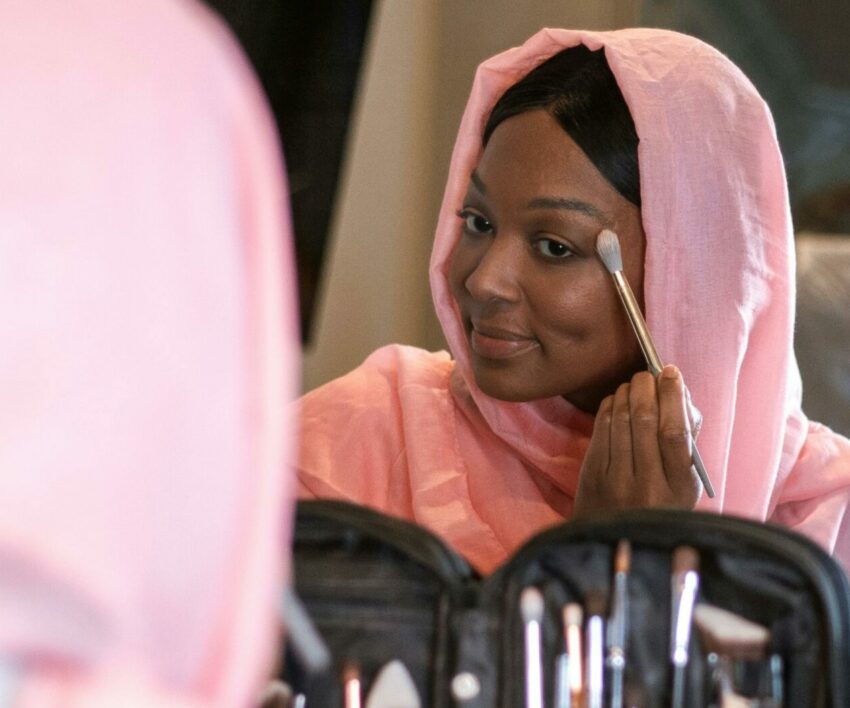makeup: picture: pexels
Ever applied a flawless face of makeup in the morning only to notice in your reflection a few hours later that your foundation has turned orange or a few shades darker? You’re not imagining things. Your makeup has likely oxidised.
Why does makeup oxidise? How can you stop it from ruining your beat? Here’s what you need to know.
What is makeup oxidation?
Oxidation is a chemical reaction that happens when your foundation (or sometimes concealer) is exposed to oxygen and mixes with the natural oils and pH levels on your skin. Just like a sliced apple turns brown after being left out in the air, certain ingredients in your makeup, especially iron oxides used in pigments, can react and shift in colour over time.
The result? Your once-perfect match starts to look deeper, duller, or more orange than when you first applied it.
Why does oxidation happen?
Your skin’s pH level: If your skin is more acidic, it can interact with the pigments in your makeup.
- Excess oil: Oily skin can cause foundation to break down quickly and oxidise faster.
- Ingredients in the formula: Some foundations are more prone to oxidation due to certain ingredients or how they’re formulated.
- Environmental exposure: Pollution, heat, and air can also contribute.
How to prevent or neutralise makeup oxidation
You don’t have to give up your fave foundation—just get strategic to prevent or neutralise makeup oxidation.
1. Prime with intention
Use a mattifying or oil-controlling primer to create a barrier between your skin and your foundation. This helps slow down the interaction between your natural oils and the makeup.
2. Blot before you apply
Especially for oily or combination skin types, blot your face before applying foundation to remove excess oil. It’s a simple but effective way to prevent early oxidation.
3. Set with powder (lightly)
Setting your base with a translucent or colour-correcting powder can lock it in place and help absorb excess oil throughout the day.
4. Choose the right formula for your skin type
If a particular foundation always oxidises on you, try a different formula—preferably oil-free, water-based, or long-wearing matte foundations that are less likely to react.
Pro tip: Always do a patch test of a new foundation in the store. Wait 10-15 minutes to see if there is a shift in colour on your skin.
5. Go half a shade lighter
If you know a foundation oxidises slightly but love the formula, try buying a shade lighter. It may balance out to your true tone once it settles.
6. Incorporate a pH-balancing skincare routine
Using a gentle cleanser and toner to help balance your skin’s pH can also reduce the likelihood of oxidation over time.
7. Use a setting spray
A good setting spray can not only lock your makeup in place but also act as a protective barrier from environmental factors that contribute to oxidation.
Pro tip: If a foundation you already own oxidises, mix it with a bit of moisturiser or a white/light mixing pigment to tone down the depth before applying.
Oxidation doesn’t mean your makeup routine is doomed—it just means you need to understand your skin and how products react with it. With the right prep, product choices, and a few tweaks, you can stop your foundation from going rogue and keep your look fresh from AM to PM.
Compiled by: Amy Steenkamp
First published by Woman and Home














